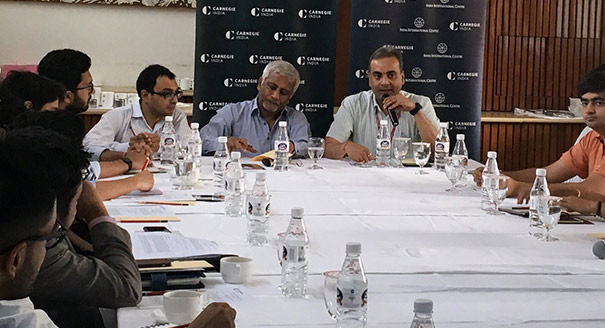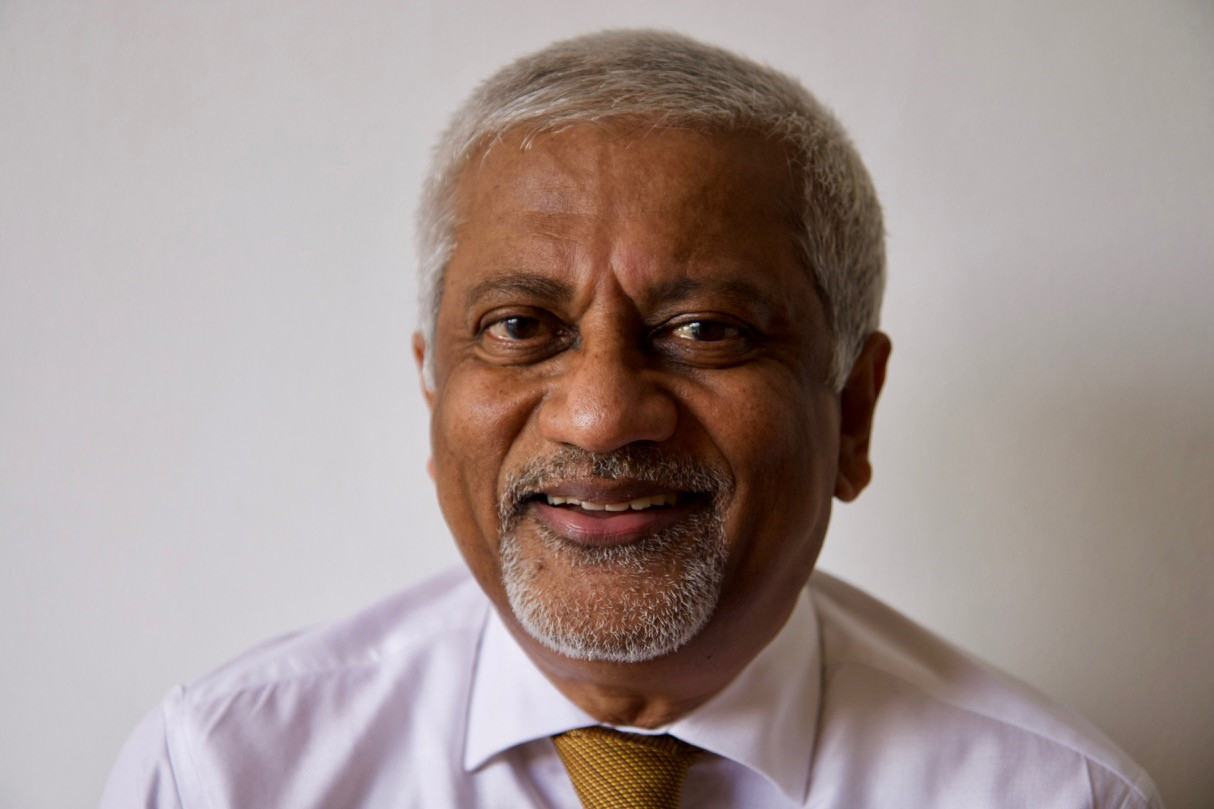{
"authors": [
"Rohan Samarajiva",
"Gaurav Dwivedi",
"Ananth Padmanabhan"
],
"type": "event",
"centerAffiliationAll": "",
"centers": [
"Carnegie Endowment for International Peace",
"Carnegie India"
],
"collections": [],
"englishNewsletterAll": "",
"nonEnglishNewsletterAll": "",
"primaryCenter": "Carnegie India",
"programAffiliation": "",
"programs": [],
"projects": [
"Technology and Society"
],
"regions": [
"South Asia",
"India"
],
"topics": [
"Political Reform",
"Technology",
"Domestic Politics"
]
}
Big Data, Development, and Governance
Wed, July 19th, 2017
New Delhi
Modern technologies like mobile phones and the internet have optimized the collection of enormous data sets. Commonly known as big data, large datasets can be extremely valuable to the government, especially in formulating informed policies and enable good governance. Carnegie India, in association with the India International Center, hosted Dr. Rohan Samarajiva, the founding chair of the Information Communication Technology policy and regulation think tank LIRNEasia, for a roundtable discussion on big data, development, and governance, chaired by Gaurav Dwivedi, CEO of MyGov, Department of Electronics and Information Technology, Government of India.
DISCUSSION HIGHLIGHTS
- Understanding Big Data: Participants began the discussion by examining the concept of big data. They considered how data is generated instantly through a range of household appliances, including electric bulbs, phones, and laptops. Participants agreed that electronically generated data was more reliable and cost-effective than traditional methods of data collection, such as surveys. They argued that the data collected by corporations and governments could be aggregated into large datasets. This, they added, could then help the government better understand human behavior and interactions in relation to their surroundings.
- Transparency in Data Collection and Balancing Privacy: Participants emphasized the importance of transparency when collecting, maintaining, and using big data. They cited several cases where transparency in data collection and usage had not been maintained. In such cases, they said, results were either biased or misleading. Participants also considered the importance of privacy when collecting personal information. They argued that personal data should only be used for specified purposes, following a detailed agreement between the individual and the organization using the data. All participants agreed that organizations should be held accountable in case of unauthorized transfer of data or data leakages. They made the case for a legal framework to prevent such data leakages.
- Understanding Problems and Designing Policy With Big Data: Participants discussed how big data would be especially useful in framing public policy, and thereby improve development outcomes. They argued that national governments have access to big data by virtue of their role in society. This access, they said, would enable governments to frame appropriate development policies. Participants cited the Sri Lankan government’s use of big data to improve transport infrastructure and public health services as examples.
- Building Capacity for Data Analytics: All participants agreed that although big data are becoming increasingly relevant for governance, the government may not be equipped to use them effectively. Participants reasoned that most government employees may not be well-versed at handling new and complicated software. In fact, they argued, even the global big data industry does not have many experts. Participants suggested that governments can either publicly disclose the data or analyze them using a public-private partnership model. Discussants felt that these suggestions could be implemented, but highlighted privacy concerns that may emerge in the process. Finally, all participants agreed that data scientists would need to work with social scientists for the government to use big data to formulate development policies.
This event summary was prepared by Aryan Agarwal, an intern at Carnegie India.
Carnegie does not take institutional positions on public policy issues; the views represented herein are those of the author(s) and do not necessarily reflect the views of Carnegie, its staff, or its trustees.
Event Speakers
Rohan Samarajiva is a nonresident fellow at Carnegie India.
Gaurav Dwivedi
